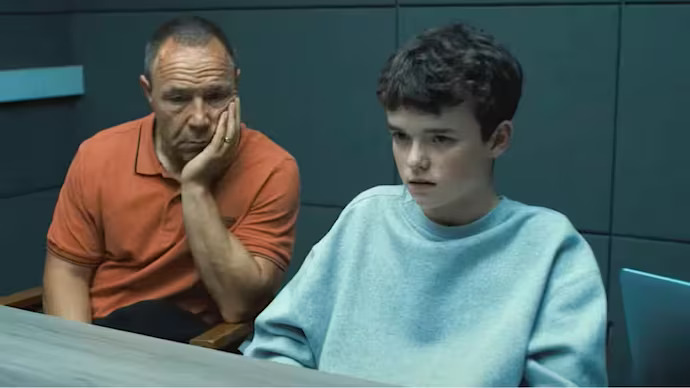A Netflix series is forcing us to confront a truth we often ignore…
Netflix’s recent psychological drama ‘Adolescence’ isn’t just a gripping show — it’s a mirror to our parenting, our blind spots, and the growing gap between generations.
As a psychologist, mental health consultant, and father to teenagers, I urge every parent and educator to treat this series not just as entertainment, but as an essential psychology lesson.
🎭 Teenage Minds: A World We Think We Know – But Don’t
We love our kids. We try to befriend them, guide them, support them. But Adolescence painfully reminds us — we do not understand them the way we believe we do.
Between us and them lies a wide chasm:
- Of generation
- Of mindset
- Of digital culture
- Of language and emotions
In Episode 3, there’s a brilliant scene where the psychologist offers Jamie a half sandwich (which he dislikes) and dark chocolate with marshmallows (which he loves). It may seem trivial — but it’s symbolic of what psychology understands deeply: what a child prefers, resists, or responds to holds the key to their emotional world.
📱 Emojis, Memes, and Mental Health: A Language We’re Not Fluent In
One of the most chilling revelations in the series was how teenagers communicate serious psychological issues through emojis. What looks like random icons to us can be part of an underground digital code that even the police couldn’t initially decode.
Terms like “incel”, “manosphere”, “red pill”, and “black pill” may sound like foreign jargon — but they’re not foreign anymore.
🧠 These ideologies are growing rapidly in India, spreading across Instagram, Telegram, Reddit, and even WhatsApp.
As the Times of India recently reported, many young boys in India — isolated, insecure, and digitally addicted — are being drawn to toxic online communities that promote misogyny, self-hate, and violence.
👨👩👧👦 Parenting Alone Isn’t Enough Anymore
We parents still think we’re in charge.
We put filters on apps, we try to be friendly, we attend PTMs.
But we cannot decode the psychological trauma they might be living with — unless we are trained to do so.
That’s where mental health professionals — psychologists, psychiatrists, and counselors — come in.
We don’t just talk. We listen, decode, and support in a structured and scientifically designed manner. This is not a luxury anymore — it’s a necessity.
📊 How Psychometric Tests Can Help
One of the easiest, science-backed tools for self-awareness is a Psychometric Test — not just for students in Class 10 or 12 but for any age. It helps uncover:
- Personality traits
- Emotional intelligence
- Career alignment
- Areas needing development
It builds clarity, reduces confusion, and forms the basis of a life-long roadmap — not just for career, but for self-understanding.
🌱 Conclusion
Adolescence is a reminder — not just of the fragility of a young mind — but also of the disconnect between love and understanding.
We love our children deeply. But are we listening deeply? Are we equipped to understand their silent screams?
Let’s start with awareness. Let’s bridge the gap. Let’s seek help when needed.
Because understanding your child isn’t optional anymore — it’s survival.
If you need any support or help regarding mental health or Psychometric test – please visit www.PremitBrothers.com and Contact amitkpremit@gmail.com




